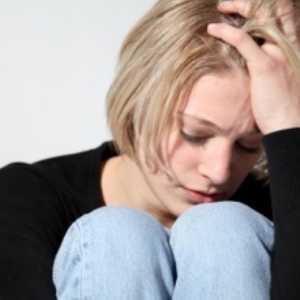
Researchers found the proportion of women who reported having depression symptoms dropped consistently, starting 10 years before they had their final menstrual period until eight years after.
"If this is a condition that seems to appear in conjunction with approaching menopause, it may be time limited and the risk may really diminish to low levels once they pass menopause," Ellen Freeman, the study's lead author, said.
Freeman is a research professor at the University of Pennsylvania School of Medicine in Philadelphia. Previous studies found women have a higher risk of depression as they enter menopause, the researchers write in JAMA Psychiatry.
Scale of depression symptoms
But little was known about what happened after a woman stopped getting her menstrual periods altogether. Freeman and her colleagues studied 203 women between the ages of 35 and 48 who had not gone through menopause in 1996. They followed the women through 2010.
Women completed a questionnaire every so often to determine if they were depressed. At the beginning of the study, about 40% of them scored high enough on the scale of depression symptoms to show they had at least mild or moderate depression, the researchers found.
Starting a decade before their last menstrual period, women's risk of depression fell about 15% every year during the study. "One average, for two years after the final menstrual period the risk is still high but after that the risk goes down pretty low," Freeman told Reuters Health.
The pattern of depression symptoms around menopause was similar for women who did and didn't have a history of depression leading up to the study. But across the research period, women with a history of depression were more than 13 times more likely to report having depression symptoms again compared to women with no history of depression.
For those women, Freeman said, depression should not be treated as a symptom of menopause. "It would appear that for women who had depression before and have depression again, it's probably a different underlying process," she said.
Hormone levels
As for women without a history of depression, while the researchers can't say hormone levels caused depression symptoms, they did find an association between women's scores and hormone levels. The existing evidence on a link between rapidly changing hormones and depression is conflicting, Joyce Bromberger said.
She studies women's mental health at the University of Pittsburgh in Pennsylvania."But it's still important to look at," Bromberger, told Reuters Health. "It's just that it's very difficult to look at hormone patterns over time."
"She said it's also hard to know how applicable the new findings would be to the average woman, because such a large proportion of participants met the test's threshold for mild or moderate depression. "I think we can say that over time that – on average – depressive symptoms go down, but that doesn't tell us about women who are at greater risk," she said.




 Publications
Publications
 Partners
Partners















